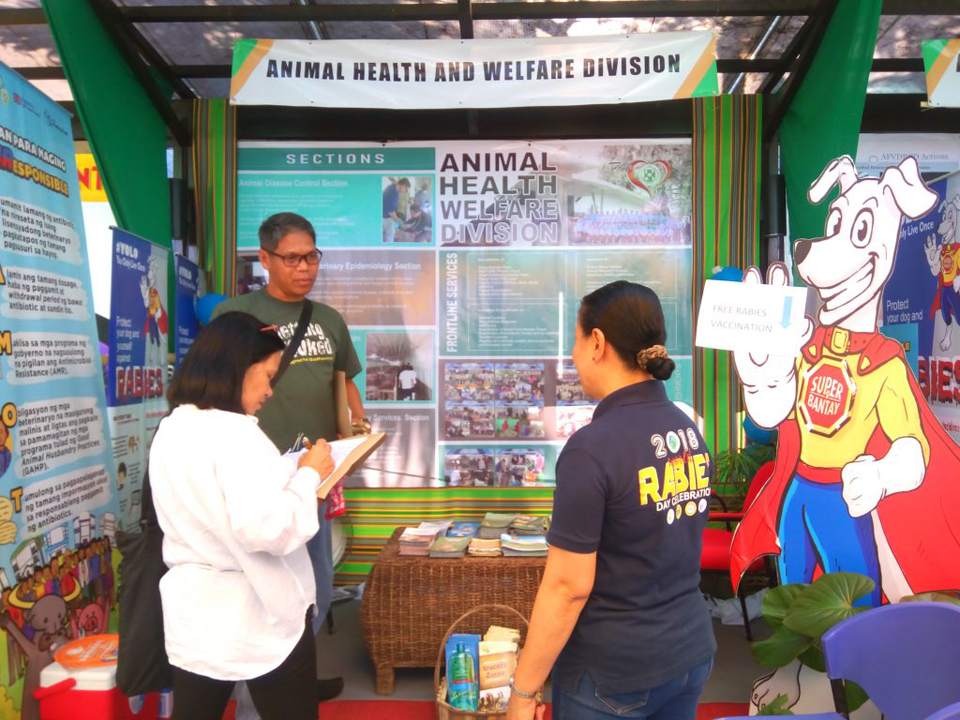
To prevent the entry of animal diseases such as the African swine fever (ASF), the Bureau of Animal Industry (BAI)—the agency mandated to promote the development of livestock industries—pledges to remain strict and vigilant in protecting the country’s animal industry.
BAI, created on January 1, 1930, celebrated its 89th founding anniversary from February 4-8, 2019.
Dr. Jocelyn Salvador, BAI OIC-Assistant Director, said that in the past years, BAI has successfully implemented many programs especially those focusing on animal disease control, quarantine measures, and food and feed safety. She also acknowledged that preventing emerging and re-emerging diseases continues to be a challenge for the bureau.
“The Philippines is currently free from the ASF, so we’re being very watchful to prevent its entry. Up to now, we are also free from the Foot and Mouth Disease. We’re very strict in terms of quarantine and the movement of animals,” Salvador stated.
In 2017, the country recorded its first avian influenza outbreak, which was immediately taken under control. According to Salvador, control measures are in place to prevent it from happening again.
Upgrading animal health technologies
Over the years, BAI has improved the detection of animal diseases and production of vaccines.
“We have formulated vaccines for a number of diseases now,” Salvador said.
The bureau has also established advanced laboratories wherein the polymerase chain reaction (PCR) method in molecular biology can be performed.
Rabies-free by 2020
To help achieve a rabies-free Philippines by 2020, BAI provides anti-rabies vaccines throughout the year. Local government units (LGUs) and concerned regional offices are also encouraged to coordinate their requests for vaccines with BAI.
“We plot on a map the municipalities that were already given vaccines to ensure that nobody is left behind,” Salvador explained.
“Thi s is to ensure that the limited budget and supply of vaccines are maximized,” she added.
During its four-day anniversary celebration, dog owners were invited for free dog vaccination.
Free trainings and seminars
One of the highlights of BAI’s 89th anniversary is the conduct of seminars on meat processing, forage development, native animal production, and bee keeping that are open to the public.
“Nalaman ko iyong tungkol sa seminar na ito sa Facebook (I learned about this seminar through Facebook),” Salvador Sarting from Caloocan said.
He shared that he attended the seminars on native animal (chicken, duck, and pig) production because he wants to venture in animal production on his farm in Victoria, Northern Samar.
During the seminar on native animal production, 30 participants were selected through a raffle and were provided with native animals that they can raise for livelihood.
“Although raffles are not regularly done during BAI seminars, we try to provide ‘starter kits’ for participants and provide free seminars in the different parts of the country through its farms and centers,” Salvador explained.
Strong links
At 89 years, Salvador claims that the current plans and programs of BAI have continued to work well.
“As such, these initiatives are sustained with a stronger collaboration with partner industries, with the academe in terms of research, with our stakeholders, and with the breeders and animal growers, among others,” she said.
Women in farming
The BAI anniversary themed “Kababaihan: Kaagapay sa Maunlad na Paghahayupan” celebrated the role of women within the animal industry.
Recognizing the participation of women in farming and agriculture-related business enterprises, Salvador stated that there have been many success stories in relation to livestock wherein women are at the front line.
She added that farming and agribusiness are family-oriented activities and women are treated as partners and role models. ### (Gumamela Celes Bejarin, DA-AFID)













